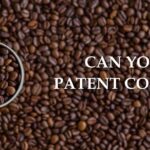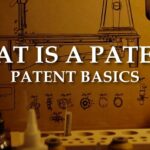Should You File Your Own Patent Application?
Are you protected if you have filed your own provisional or non-provisional patent application?
Likely not.
Writing a patent application is an extremely technical process, and patent attorneys are often taught under another attorney for several years before they write patent applications on their own. Over the last 20 years, our firm has found that every inventor filed provisional patent application has been fatally flawed in one way or another. This is true even when the inventor goes online and has a company “assist” them with the preparation. Basically, if the patent attorney is not doing all of the work, there will be problems with the application.
The above can lead to a very serious scenario. As mentioned in earlier posts, the US has a one-year bar date where you have to file your patent application within one year of making the invention public. This includes making, selling, or using it in public as well as general public disclosures of the invention.
Imagine a first case where an inventor starts to sell their invention, thereby making it public, and waits six months to file a provisional application. Later, before the provisional application goes into abandonment but more than 12 months after the first offer for sale, the inventor tries to file a non-provisional application claiming the filing date of the provisional application. During the patent examining procedure, the patent Examiner finds that the provisional application does not teach everything shown in the nonprovisional, and the provisional was otherwise deficient in accurately teaching the invention. The Examiner will object to the usage of the provisional as the basis for the application, and that filing date is lost. Because the non-provisional application filing was more than 12 months after the first sale, the non-provisional application is rejected as well, and the inventor loses all rights to the invention.
In a second case, the inventor files their own non-provisional application either before or after they begin to make and sell it. Because it will typically be at least 18 to 24 months before the application is looked at by the Examiner, there is a high probability that by the time the applicant is notified of errors and omissions in the patent application the one-year bar date will have already expired. Because new matter cannot be added to a previously filed patent application, the errors cannot be corrected and all rights are lost by the inventor.
These scenarios are real and play out in the real world on a daily basis. It cannot be stressed enough that an inventor is not qualified to write their own patent application. Disastrous results can occur when the inventor relies on protections that do not, in reality, exist. Not only is there a concern that uncorrectable errors will be made, but a patent attorney is best suited to make sure that the inventor will obtain a greater amount of protection that covers other articles which are similar, but not identical, to the invention at hand.
A Message Of Caution
Provisional and non-provisional patent applications are one area of a law where you need an expert trained in writing patents. Unqualified individuals cannot write a patent application properly. By relying on anything that was not wholly prepared and vetted by a patent attorney, an individual will have wasted time and money, and potentially lose all rights in their invention. We do not say this to be harsh or demean someone’s writing abilities, but because we have never had a client come to our firm with a self-written application that is useful. More often than not, the inventor has severely damaged rights by relying on their own filing.
Learn More – Download The Intellectual Property Playbook
Download our free guide, The Intellectual Property Playbook – An Entrepreneur’s Guide To Patents, Trademarks, and Copyrights.
Intellectual Property Playbook
An Entrepreneur's Guide To Patents, Trademarks, and Copyrights GET THE PLAYBOOK








